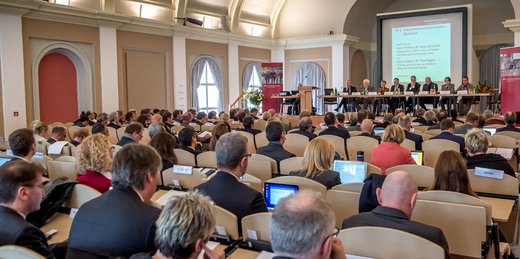The General Assembly of the German Rectors’ Conference (HRK) yesterday addressed doctoral education with external employment contracts in a further resolution on quality assurance in doctoral education. This refers to those cases in which the doctoral candidate has an employment contract with an external institution (company or non-university research institution) that is connected with the doctoral project. A common example might be doctoral candidates in the engineering sciences who work in industry and carry out research that is directly relevant to the particular company.
HRK President Prof Dr Horst Hippler said: “These models create a close connection to corporate practice or, if doctoral candidates are working in a non-university research institution, contribute to networking within the research system. These are clearly positive effects.
However, the exclusive responsibility of the universities for doctoral education must not be allowed to become blurred in such constellations. Only they can judge academic quality. There is cause for concern in relation to this aspect. Individual companies promote their own “doctoral programmes” without sufficiently clarifying the role of the universities. Topics are decided without consultation with the university supervisor, and the verifiability of data and the publication of results are restricted by confidentiality requirements.”
In the key points that have now been adopted, HRK member universities explain clearly how quality assurance can be designed for doctoral education with an external employment contract. They highlight the rights and duties of the universities entitled to award doctoral degrees, as well as those of their departments and professors that must be taken into account by external partners.
After the General Assembly, HRK President Hippler said, “We are conducting talks with our partners in industry and at non-university research institutions. The key points should serve as a yardstick for appropriate consultation for all parties involved. Ultimately, safeguarding the quality of doctoral education in Germany is in everyone’s interest.”
To the key points
Press Release
HRK General Assembly: Doctoral education with an external employment contract
15. November 2017

